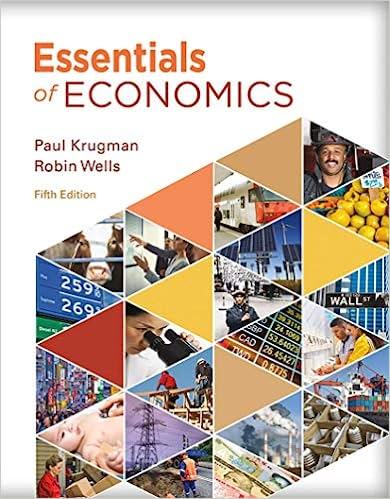The United Kingdom is home to two long-haul airline carriers (carriers that fly between continents): British Airways
Question:
The United Kingdom is home to two long-haul airline carriers (carriers that fly between continents): British Airways and its rival, Virgin Atlantic. Although British Airways is the dominant company, with a market share generally between 50% and 100% on routes between London and various American cities, Virgin has been a tenacious competitor.
The rivalry between the two has ranged from relatively peaceable to openly hostile over the years. In the 1990s, British Airways lost a court case alleging it had engaged in “dirty tricks”
to drive Virgin out of business. In April 2010, however, British Airways may well have wondered if the tables had been turned.
It all began in mid-July 2004, when oil prices were rising. British prosecutors alleged that the two airlines had plotted to levy fuel surcharges on passengers. For the next two years, according to the prosecutors, the rivals had established a cartel through which they coordinated increases in surcharges. British Airways first introduced a £5 ($8.25) surcharge on long-haul flights when a barrel of oil traded at about $38. It increased the surcharge six times, so that by 2006, when oil was trading at about $69 a barrel, the surcharge was £70
($115). At the same time, Virgin Atlantic also levied a £70 fee. These surcharges increased within days of each other.
Eventually, three Virgin executives decided to blow the whistle in exchange for immunity from prosecution. British Airways immediately suspended its executives under suspicion and paid fines of nearly $500 million to U.S. and U.K. authorities. And in 2010 four British Airways executives were prosecuted by British authorities for their alleged role in the conspiracy.
The lawyers for the executives argued that although the two airlines had swapped information, this was not proof of a criminal conspiracy. In fact, they argued, Virgin was so fearful of American regulators that it had admitted to criminal behavior before confirming that it had indeed committed an offense.
One of the defense lawyers, Clare Montgomery, argued that because U.S. laws against anticompetitive behavior are much tougher than those in the United Kingdom, companies may be compelled to blow the whistle to avoid investigation. “It’s a race,” she said. “If you don’t get to them and confess first, you can’t get immunity. The only way to protect yourself is to go to the authorities, even if you haven’t [done anything].” The result was that the Virgin executives were given immunity in both the United States and the United Kingdom, but the British Airways executives were subject to prosecution (and possible multiyear jail terms) in both countries.
In late 2011 the case came to a shocking end for Virgin Atlantic and U.K. authorities. Citing emails that Virgin was forced to turn over by the court, the judge found insufficient evidence that there was ever a conspiracy between the two airlines. The court was incensed enough to threaten to rescind the immunity granted to the three Virgin executives.
Questions:-
1. Explain why Virgin Atlantic and British Airways might collude in response to increased oil prices. Was the market conducive to collusion or not?
2. How would you determine whether illegal behavior actually occurred? What might explain these events other than illegal behavior?
3. Explain the dilemma facing the two airlines as well as their individual executives.
Step by Step Answer:






